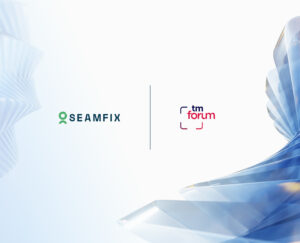In 2022, Africa’s gaming and betting scene exploded, making nearly a billion dollars in revenue. Nigeria, Ghana, and South Africa lead the pack, with South Africa being the top player. Most of this action comes from sports betting, and what’s interesting is that people now prefer to play online (iGaming) rather than going to physical casinos or shops.
What’s surprising is that there’s a lot more to this preference than what meets the eye. Despite its growth, Africa’s gaming and betting industry battles persistent fraud and inadequate security measures. According to the Nigeria Inter-Bank Settlement System (NIBSS), Nigerian banks have already lost roughly N9.5 billion in 2023, with betting platforms among the most used tools by fraudsters.
As Alan Pedley aptly stated, ‘KYC isn’t merely about compliance; it’s the foundation of a responsible gaming industry. It’s about ensuring every player’s experience is safe, fair, and enjoyable.”
So what needs to change? Let’s take a critical look at it.
KYC Challenges in the Gaming and Betting Industry
The recent international gaming conference in Lagos brought crucial discussions to the forefront, focusing on combating money laundering and terrorism financing.
Despite their efforts, the gaming landscape in Africa grapples with adherence to regulatory frameworks. Intense competition often drives operators to prioritise short-term gains over long-term compliance goals. This lax approach creates loopholes that financial criminals exploit to launder illicit funds, exploiting loopholes within the system.
For example, in Nigeria, the absence of strict enforcement, such as the non-mandatory requirement for the National Identity Number (NIN) on gaming platforms, has led to rampant instances of identity theft, underage players, and fake credentials. During the pandemic, industry reports revealed a staggering 200% surge in fraudulent account creations and gaming-related scams, underscoring the industry’s susceptibility to fraudulent activities.
The fallout from regulatory lapses extends beyond financial penalties; it affects player trust and loyalty, prompting them to seek alternatives elsewhere. Underage iGaming also poses unique psychological risks to young participants, as excessive exposure can lead to addiction, social isolation, and academic decline.
To mitigate these risks, regulators must implement stricter KYC and AML (Anti-Money Laundering) procedures, enhance data-sharing protocols, and collaborate closely with law enforcement agencies.
Preventing Fraud with Effective KYC
Frequent, fast, and seamless identity verification. That’s what the gaming industry needs to combat fraud and financial crime. KYC Platforms such as Seamfix Verify are crucial in safeguarding iGaming operators and players across three pivotal areas: onboarding, fraud detection, and anti-money laundering (AML) efforts.
Onboarding:
A robust customer onboarding process (also known as Know Your Customer or KYC) confirms a player’s name, age, and address by submitting and validating government-issued identity documents like passports or IDs. Supplementary documents like utility bills or bank statements further corroborate personal details.
Some regions permit operators to enhance onboarding by utilizing additional reliable data sources, such as electoral rolls or credit information, to establish comprehensive player risk profiles.
Fraud Prevention:
Fraudulent activities like account takeovers, chargebacks, multi-account betting, and arbitrage betting necessitate proactive measures.
Integrating identity verification into critical processes ensures that players are authenticated during high-stakes bets, significant betting volumes, or withdrawal requests from iGaming accounts to bank accounts.
Anti-Money Laundering (AML):
Money laundering poses a global threat, and it is imperative to prevent infiltration into legitimate banking systems.
AML precautions intensify the data check/KYC process by screening potential players against lists of prohibited individuals and entities, including politically exposed persons (PEPs), sanctioned entities, global watch lists, and those associated with terrorism, financial crime, election manipulation, and human rights abuses.
Biometric Authentication:
Facial and voice recognition technologies provide a secure means of player authentication within iGaming platforms. With facial biometrics being ten times more secure and voice biometrics five times faster than traditional PINs, this technology offers superior protection against account takeover, identity theft, and emerging fraud tactics like deepfakes and synthetic identities.
Seamfix Verify facilitates this process during player onboarding, ensuring an easy and secure experience through AI-trained algorithms and liveness checks for swift facial verification within seconds.
Enhancing Gaming Security and Trust with Seamfix Verify:
Seamfix Verify empowers operators and players by validating identities and combating financial crimes. Our solutions allow you to confirm over thirteen thousand document IDs across Africa, making sure every individual’s data (Name, age, location, identity number) is accurate.
We also leverage biometrics—facial recognition, liveness detection, and fingerprint authentication to ensure an individual is exactly who they say they are in real-time, enabling frictionless onboarding, AML compliance and fraud prevention.
Seamfix Verify offers scalable, secure, and compliant KYC solutions adaptable to your specific needs. Whether customising verification flows without coding using our No-code solution or integrating KYC directly into your app with robust APIs and SDKs, Seamfix Verify is your go-to partner in combatting fraud and ensuring player security within the iGaming sector.
Schedule a demo today to explore our tailored solutions firsthand.








